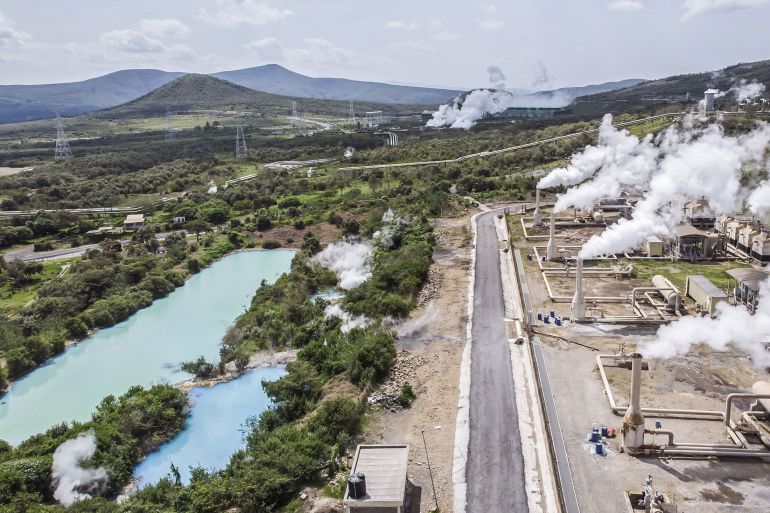Kenya is a leader in clean energy, with 90 percent of its grid already renewable [File: Bloomberg] Kenya plans to retire or convert heavy fuel oil-fired power plants to use liquefied natural gas by 2030 as the nation pursues a cleaner energy path to a 100% climate-friendly grid.
State-owned Kenya Electricity Generating Co., or KenGen, is conducting a feasibility study on reconfiguring the thermal power plants that currently account for about 7% of the grid load, said Isaac Kiva, renewable energy secretary at the Energy Ministry. The move is part of the East African nation’s target to reach net-zero carbon emissions by 2050.
“We won’t be using heavy fuel oil anymore,” Kiva said in an interview. “The idea is that those thermal power plants (with contracts) going beyond 2030 will be converted to use LNG.”
The plan seeks to consolidate Kenya’s position as a leader in clean energy, with 90% of its grid already renewable, and is in line with President Uhuru Kenyatta’s push for investment in a sector that’s based on expensive technology. Africa has suffered the brunt of climate change, despite producing less than 5% of the world’s green house gases – and efforts to cope are constrained by inadequate funding.
As the continent’s geothermal leader, Kenya produces more than 40% of the electricity on its national network from the underground steam. Hydropower contributes a quarter of the power on the grid, while wind sources account for almost 22% and solar 1.3%, according to a September report by the Energy and Petroleum Regulatory Authority, or EPRA.
The Globeleq and Aga Khan Fund for Economic Development-backed Tsavo Power Co. disconnected its 74-megawatt thermal plant from the grid last month. The government decided not to review its 20-year power purchase agreement after it expired in September, Tsavo Power Chief Executive Officer Julius Riungu said. Another 56-megawatt thermal plant owed by Iberafrica Power, a unit of A.P. Moller Holding, was decommissioned in October 2019.
The remaining thermal plants, converted to use LNG, will be tapped when demand peaks and to provide the so-called voltage support, said Joseph Oketch, a director in charge of electricity at EPRA.
Some thermal plants were designed to use heavy fuel oil and LNG, making it easy to switch, according to Kiva. Kenya expects to get gas from Tanzania once a planned pipeline is built.
In the meantime, the government is ramping up production from renewable sources and is on course to add to […]
